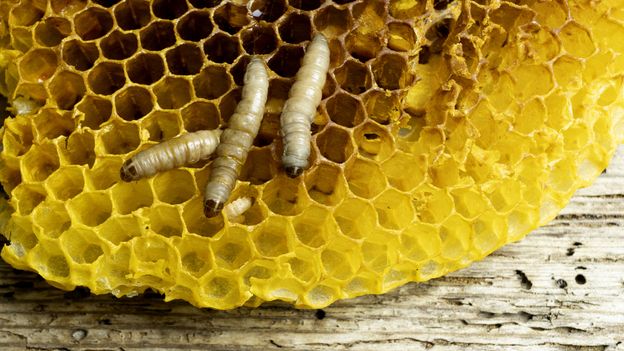Wriggling critters armed with enzymes can break down plastics that would otherwise take decades, or even centuries to degrade.
At first glance there’s nothing particularly remarkable about waxworms. The larval form of wax moths, these pale wriggling grubs feed on the wax that bees use to make their honeycomb. For beekeepers, the pests are something to swiftly get rid of without a second thought.
But in 2017 molecular biologist Federica Bertocchini, who at the time was researching the embryonic development of vertebrates at the Spanish National Research Council, stumbled on a potentially game-changing discovery about these creatures.
Bertocchini, an amateur beekeeper, threw some of the waxworms in a plastic bag after cleaning her hive, and left them alone. A short time later, she noticed the worms had started producing small holes in the plastic, which begun degrading as soon as it touched the worms’ mouths.



Maybe I’m missing where the article said it, but what does it break the plastic down into? That seems like it would be pretty critical information in terms of the utility here.
my guess is that something else will be able to unzip it and use it as an energy source
yep in the linked article it is mentioned that product is ethylene glycol
Mercury :)
/s
That’s pretty cool.
Just to be clear, I’m taking the piss.
ohhhh, and it’s your piss that produces the mercury? that is cool.
It’s pretty metal, too…